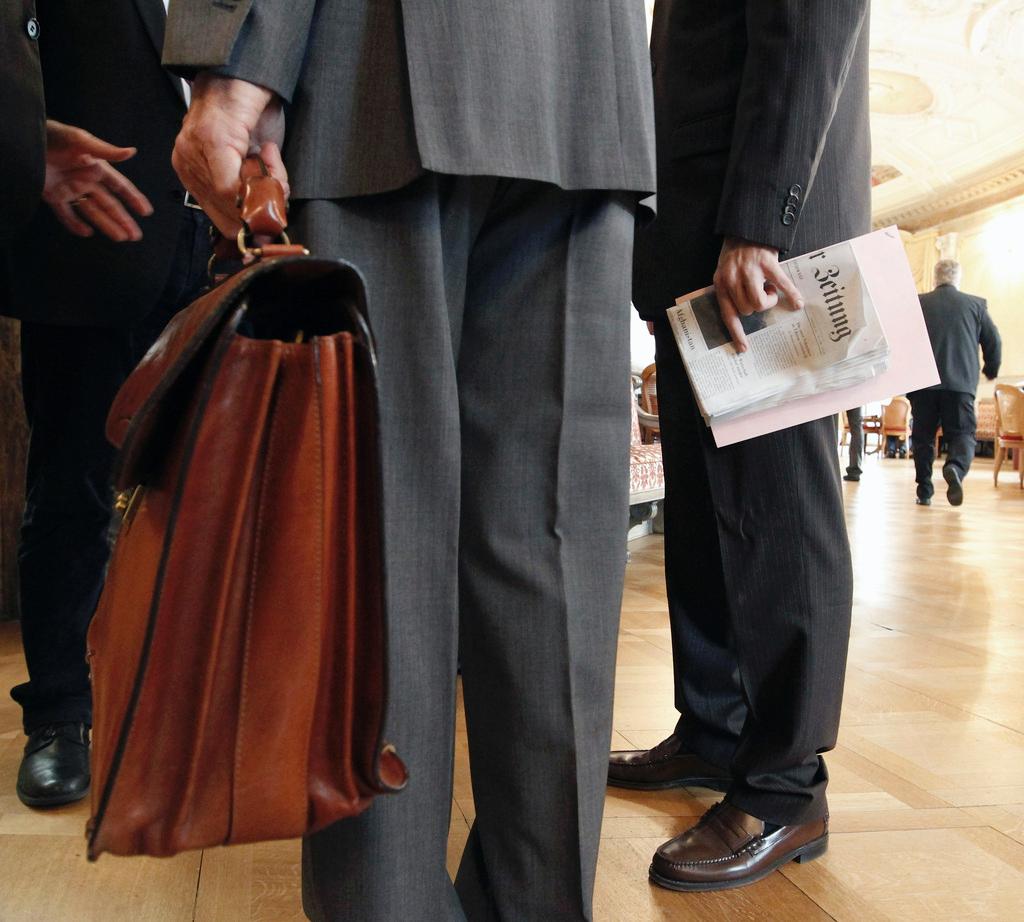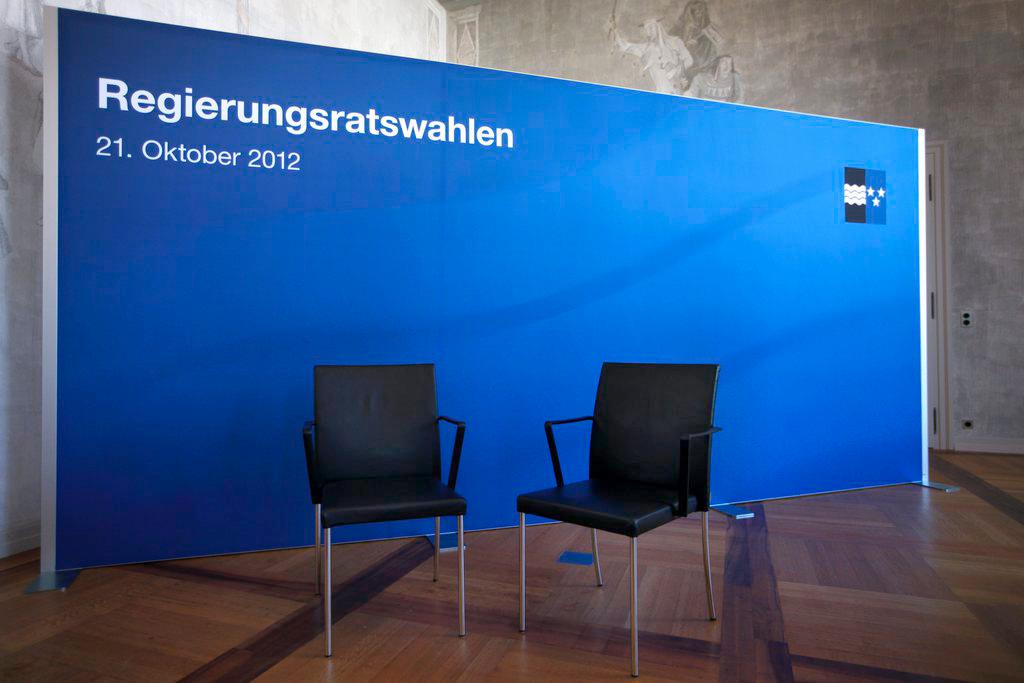Swiss parliamentarians resist transparency

A former Swiss ambassador secretly lobbying for Kazakhstan’s interests inside the government building; or a Swedish arms factory’s nebulous attempt to influence Switzerland’s order for fighter jets: both cases have rekindled demands for more transparency in lobbying.
“I don’t judge single cases, but this is certainly not lobbying,” says lobbyist Andreas Hugi, president of the Swiss Association of PR agencies (BPRA), when asked for his opinion on the lobbying activities of former Swiss ambassador Thomas Borer in Kazakhstan’s interest.
The country has been under the tight grip of President Nursultan Nazarbayev and his clan for many years. Lobbying is legitimate, an attempt to influence the legislative process on behalf of particular organisations. According to Hugi, Borer didn’t do that; he simply tried to get information on an ongoing legal procedure (see box).
Borer is one of 400 “guests” who have a permanent entry pass to the Swiss parliament building. Every parliamentarian has the right to designate two people to receive these permits. Borer got his from Thomas Matter, a parliamentarian from the conservative right Swiss People’s Party. “This was purely a favour,” Matter told the media.
It is not always clear what all these “guests” are actually doing inside the parliament building.
Are there any others campaigning in the interest of other states? Hugi is convinced that Thomas Borer was an isolated case. “A constitutional state usually uses diplomatic channels to protect its interests from other countries,” says Hugi.
Hugi – the founder and co-owner of ‘furrerhugi’, one of the largest PR agencies in Switzerland – has his own pass, donated by Radical Party parliamentarian Ruedi Noser, who he says has been his friend for years. As opposed to Borer, though, Hugi claims he has always been open about clients whose interests he is representing.
Nipped in the bud
Like Hugi, communications consultant Iwan Rickenbacher has no knowledge of cases like Borer’s. However, the political scientist, who is the former secretary-general of the centrist Christian Democratic Party, is certain that there are grey zones – situations in which other countries tried to influence Swiss parliamentary operations.
“When aircraft manufacturers tout their fighter jets, no matter whether it’s a French Rafale or a Swedish Grippen, it is not only about industrial products but about the interests of the state. Indirectly, lobbying is taking place for French or Swedish interests,” says Rickenbacher.
Even the Association of Lobbyists has called for an accreditation process, which could actually shed some light on such dark dealings. Under this process, accredited lobbyists would have to disclose all the interests they represent.
The US has one of the strictest accreditation systems. It requires not only the lobbyists but also the lobbyists’ clients to inform the authorities about any lobbying activities. The same applies to the EU, which even goes a step further. Anyone who wants to be registered in the lobbying directory is required to disclose the sums received for lobbying.
Several political initiatives demanding more transparency in lobbying in Switzerland have been nipped in the bud, mostly by the Swiss parliament. A parliamentary initiative launched by Radical parliamentarian Andrea Caroni, demanding clear rules and transparency in lobbying in parliament, was widely rejected three years ago. “Some of the people didn’t see a problem; others were worried that we wouldn’t find a realistic solution. However, I still believe that the fear of losing the [parliamentary] pass was the biggest stumbling block,” Caroni says.
Favourite lobbying
Political scientist Rickenbacher also criticises the parliamentary pass system, which some people acquire as a return favour from parliamentarians. “This system creates dependencies, and influences decisions in ways that are not transparent,” he says.
The introduction of a system to monitor vested interests as well as lobbyists and clients has repeatedly failed, “as some members of our so-called lay parliament consider themselves lobbyists of associations, institutions and industrial groups and are unwilling to accept any conditions”, says Rickenbacher. Whenever tougher rules are called for, the common excuse is that members of a lay parliament cannot give up their profession, as they have to make a living.
However, a studyExternal link by the Department of Political Science at the University of Zurich found that only one in eight members of the House of Representatives is a lay politician; and there is not a single lay politician left in the Senate. “Although Switzerland celebrates the concept of a lay parliament, it accepts that most of its parliamentarians are now working full-time,” says Rickenbacher.
People’s representative or lobbyist?
Lobbying is certainly a necessary exchange between civil society, the economy and parliament, says Rickenbacher, “but please let’s introduce and apply clear rules regarding obligatory disclosure”, such as in professional parliaments of progressive states.
With such a regulation in force, some Swiss parliamentarians would have to withdraw from certain businesses. “We would have to discuss whether mandates of the board of a health insurance company conflicted with membership in the health commission.”
For the time being, four out of five members of the Committee for Social Security and Health – the body responsible for drafting such proposals to be submitted to parliament – have a direct connection to firms or organisations in the health sector.
Former ambassador lobbies for Kazakhstan
According to media reports from January 2015, former Swiss ambassador Thomas Borer has tried to influence Swiss legal authorities, politicians and media on behalf of Kazakhstan. The reports are based on comprehensive data allegedly published recently on a Kazakh website. Borer, the former boss of the task force for unclaimed Holocaust assets, is said to be supporting the Kazakh president Nursultan Nazarbayev in hunting down the Kazakh regime critic Viktor Khrapunov, who allegedly found refuge on Lake Geneva. Borer is accused of having provided his client with insider information from the Federal Prosecutor’s Office for a monthly fee of $30,000 (CHF30,200). Furthermore, Borer is said to have supported some members of parliament by drafting a Kazakhstan-friendly interpellation for the House of Representatives.
Borer denies several of the claims made by the media. “I advise the Kazakh Justice Ministry in its dealings with the Swiss authorities in connection with criminal proceedings involving people who have cheated Kazakhstan out of billions and who laundered portions of this money in Switzerland. In particular, Mr. Khrapunov,” he wrote to swissinfo.ch. He did not, as claimed by the Neue Zürcher Zeitung newspaper, offer “insider information” obtained from the Federal Prosecutor’s Office. “I pass along information which I have obtained through formal channels.”
Vested interests
“As the government has been largely idle in this area, a group of journalists and computer scientists is trying to disclose the vested interests of parliamentarians and their authorised “guests” through the platform LobbyWatch.chExternal link. At least half of the parliamentarians have not declared their vested interests even though they are obliged to,” says Thomas Angeli, co-president of LobbyWatch.
A classic case was the vested interest of Economics Minister Johann Schneider-Ammann and the financing company Afinsa, which managed money the Ammann Group invested in an offshore company in Jersey. “Schneider-Ammann has never disclosed this mandate. Before he was voted into the House of Representatives he explained that some of his mandates had ‘simply and completely unintentionally slipped his attention’.”
Many of the approximately 400 “guests” owing their entry pass to a member of parliament have never officially declared who they were lobbying for, says Angeli.
Translated from German by Billi Bierling

In compliance with the JTI standards
More: SWI swissinfo.ch certified by the Journalism Trust Initiative


You can find an overview of ongoing debates with our journalists here. Please join us!
If you want to start a conversation about a topic raised in this article or want to report factual errors, email us at english@swissinfo.ch.